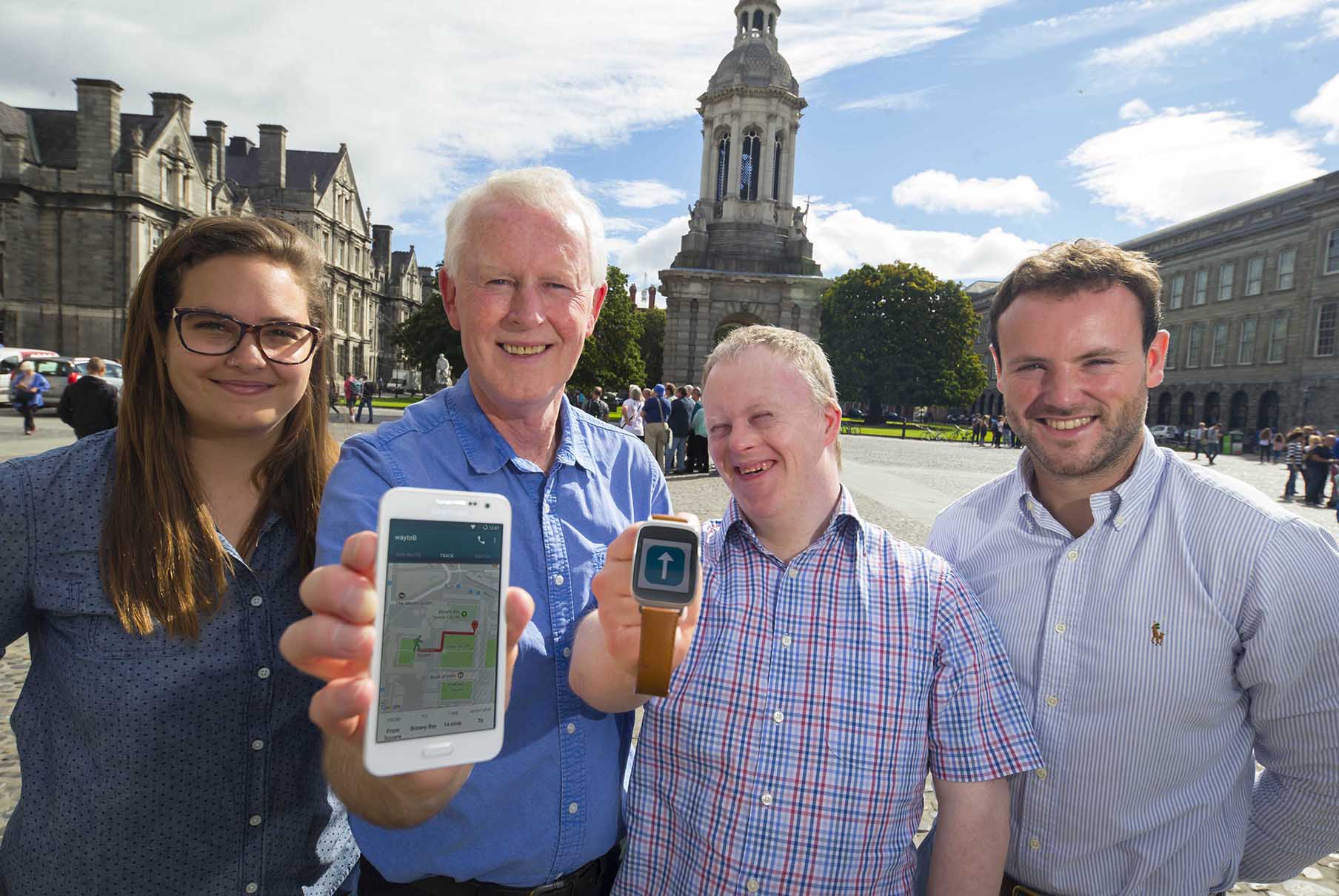Two Trinity graduates are one step closer to a €35,000 prize in the international James Dyson award after winning the Irish leg of the competition with their navigation app for people with intellectual disabilities.
Robbie Fryers and Talita Holzer Saad, who graduated from Trinity and are currently working in the university as research assistants, have won the Irish leg of the James Dyson Award for creating an app, which is designed to help people with intellectual disabilities to navigate unaccompanied.
Fryers and Saad first came up with the idea for their software programme waytoB when participating in a module called Innovation in Product Development. As part of the module, they were tasked with finding ways of better integrating people with intellectual disabilities into society. From there, they developed their app to help people with intellectual disabilities move and travel unassisted.
In a press statement, the pair said they “are passionate about aiding people who are currently excluded from activities in society to integrate seamlessly and to become more independent”.
Apps such as Google Maps and other satellite navigation programmes are often not suitable for those with disabilities like Down Syndrome or autism due to their complicated interfaces. Their app, available for smartphones and smartwatches, gives turn-by-turn directions based on real-time location and is integrated with public transport data. The app also enables each user to have a designated partner. This partner can tailor their journey so that the user is guided to the safest street crossing as opposed to traditional navigation apps that merely find the quickest route.
It can also be used to enable users to go on longer or more complicated journeys with their carer able to see the individual’s location, heart rate and battery usage. The audio element of the solution also enables people who have visual impairments or are illiterate to travel independently. In the case of an emergency, a panic button has been built into the app.
While the app is still in its beta stage and is being trialled by six people with Down Syndrome along with their carers, the feedback thus far has been encouraging. As national winners the pair received a prize of $2,500 and now have a chance to win the grand prize of $40,000 with a further $6,000 awarded to Trinity. Sir James Dyson, who the award is named after, will pick the overall winner out of the top 20 entries which end up progressing to the final stage. These 20 entries will be picked by engineers at Dyson and will be announced on September 28th, with the overall winner being announced on October 26th.
The company, which enjoyed support from numerous staff in Trinity, hope to launch their final product in Ireland, the UK and the US next year. In a press statement, Prof Kevin Kelly, who helped guide their application for the Dean’s Innovation Award, said: “We worked hard to secure funding from the Schools of Engineering and Nursing & Midwifery to allow them both to continue work on the project once they graduated, with Talita returning from Sao Paulo, which I think speaks to the level of their commitment to progressing the concept.”
“We believe we have a winning formula for product/service innovation and we have top talent in the form of our students and those of our partner universities in the SUGAR network. Put it this way, waytoB will probably not be the last time you hear of students from this programme winning awards like this”, he added.







